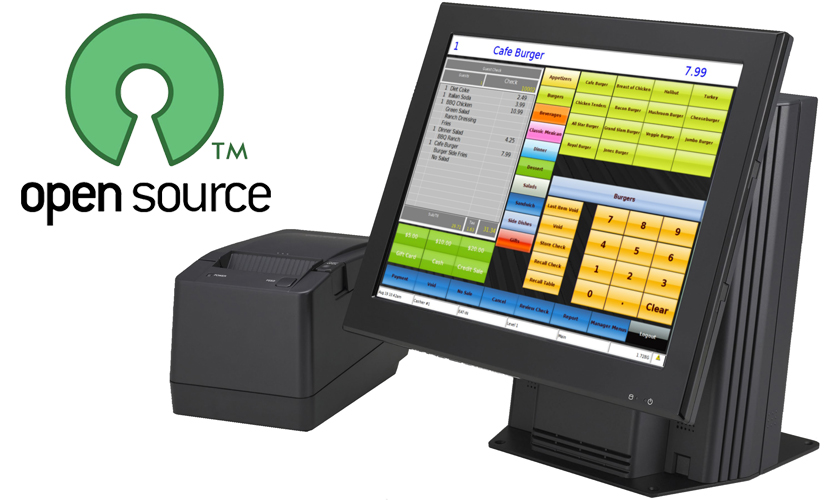An open source POS, where the source code is exposed for your use, offers significant advantages over a proprietary system that keeps its code rigidly under wraps.
Open source systems play well with others. Their ability to integrate and connect with third-party products from accounting and customer relationship management software to order management and inventory systems makes them an attractive proposition for business owners who need to expand beyond the feature set of a proprietary POS.
-Faster development: Another advantage of open source systems is that they are often backed by a large community of developers who are continually building new functionality and improving on old features.
-Lower cost: In this case, “lower cost” means “almost free”. You still need to buy the hardware, but the software itself is free to use.
-Better security: If the source code is out there for anyone to see, doesn’t that mean it’s open to malicious programmers who want to hack into your data? Isn’t that a security nightmare? On the contrary, the large community of developers that builds new functionality also searches out and repairs security flaws. In that way, an open source POS is actually more secure, and these are some of the many options for securing it:
Chromis Drupal POS Floreant Odoo Open Source Point of Sale Unicenta
Source: opensource.com







0 Comments